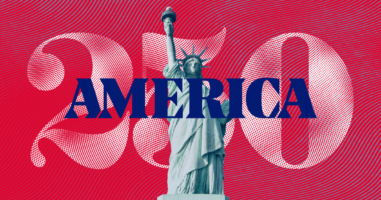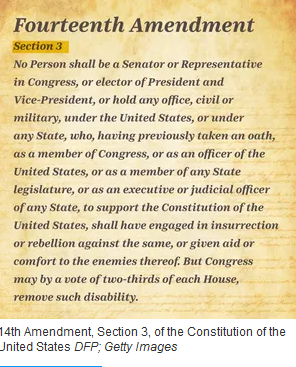
This post is the second on the SHEAR conference July 21-24, 2016, in New Haven, on the weekend sessions I was able to attend. The first post was on
The Public and the Early Republic
The Year without Summer (1816)
and generated the following two important responses:
Marla Miller (panelist and co-author Imperiled Promise): Thanks for this coverage of the session! Readers interested in learning more about Imperiled Promise and the reception of its various observations and recommendations should watch for the upcoming special issue of The Public Historian, which will include an essay by me and Anne Whisnant on that complex subject.
Rick Shenkman (Publisher, History News Network): Thanks Peter! I read the three reports on SHEAR and the NPS and learned from them.
The subject of this post is 1824 RECONSIDERED: A ROUNDTABLE ON DONALD RATCLIFFE, THE ONE-PARTY PRESIDENTIAL CONTEST: ADAMS, JACKSON AND 1824’S FIVE-HORSE RACE. The final post(s) will be on the slavery sessions, one that was part of the original program and the one that was added at the conclusion of the conference.
Donald Ratcliffe, University of Oxford
Ratcliffe opened the session about his book by declaring that the election in 1824 evolved from a beauty contest to one of fractious competition. He cited the impact of the Missouri Compromise, the New England and Southern support for the maintenance of existing tariff connections, and ethnic conflicts as contributing factors.
Ratcliffe sought to correct the images of John Quincy Adams and Andrew Jackson. He is interested in who they were at the time of the election and not who they became in the popular mind after each of their presidencies. Jackson was portrayed as a national hero who could restore the glory of the country [Make America Great Again?] He was a Scotch-Irish American who gave a bloody nose to the English in New Orleans [this suggests that the technicality of a treaty already having ended the war was irrelevant to America’s reaction and thus New York’s victorious Battle of Plattsburg on 9/11 has been diminished ever since!].
Jackson didn’t initiate a democratic transformation. It was already underway at least for adult white males.
Ratcliffe questioned the traditional perceptions that Jackson won the popular vote and that the election was stolen from him in the House of Representatives. He contrasted the vote totals in the 18 states with popularly-elected electors and the 6 states with state-elected electors. New York with approximately 1/7 of the national population was an election powerhouse. It voted about 40% for Adams and nearly 0% for Jackson.
For Ratcliffe, Adams was the candidate with a more national appeal who supported national projects or internal improvements. The absence of political parties in the Constitution contributed to the breakdown of the two-party system in 1824. In that sense, an election of involving numerous candidates as played out in 1824 independent of the two-party system was more reflective of the way elections were supposed to be conducted as envisioned by the Constitutional framers.
His opening comments in the session were not intended as a detailed review of his book but as means of setting the stage for the four remaining presentations.
Thomas Coens, University of Tennessee
Coens was in general agreement with Ratcliffe [which caused no surprise in the audience]. The voting totals in the 1824 election were suspect if not outright invalid. Jackson’s plurality in vote totals was an invalid myth. Adams was the winner and the candidate with a national appeal.
Coens honed in on the issue of democratization. He saw unprecedented interest in a presidential election in 1824. Coens cited democratic methods operating since the 1790s with public meetings and delegate convention techniques. Their proliferation now was not their initiation. They did cause more interest as people embraced the idea of deciding for themselves.
Sharon Ann Murphy, Providence College
Murphy identified herself as not being a political historian. I guess based on the op-ed piece in the New York Times “The End of Political History?” by Frederick Logevall and Kenneth Osgood (8/29/16), she represents the wave of the present. The future for political sessions like this one in SHEAR is an interesting topic of discussion in its own right.
On the subject at hand, Murphy’s objection was that the book didn’t focus on the personalities of the candidates. She opined that they do matter contrary to the book.
Murphy wondered what would have happened if DeWitt Clinton of New York had become involved in the presidential race.
She agreed that Adams really did win more votes and that there was no corrupt bargain in the House to throw the election to him. However those facts does not mean the metanarrative was wrong. Did the people believe that is what happened? Was Jackson able to leverage the false view of his defeat in the election of 1824 into victory in 1828? Did the memory of the 1824 election haunt Clay for the remainder of his career as a permanent stain? The story of 1824 can’t be limited to the results of 1824 alone since it was part of the continuing story.
Note: She didn’t mention if she thought Jackson knew the popular image of the 1824 election was false and just exploited it to his own advantage or whether he really believed it as well.
Jeffrey L. Pasley, University of Missouri
Pasley suggested that the election of 1796 set up subsequent election of 1824. Both involved John Adamses and both winners were one-term presidents. Both Adams were succeeded by two-term presidents of greater renown in Jefferson and Jackson. Both Adams blamed others for their fates. He echoed Ratcliffe’s view that the 1796 and 1824 elections worked the way the founders established the presidential election system to be but that both produced weak presidents.
The Florida conquest was popular nationally. It reflected well on Adams, Monroe, and Jackson but not Clay who opposed it.
Pasley thought the accuracy (or lack of) for local results might have obscured the national story. Politics are not only local. He reminded everyone during this presidential election year that analyzing CNN appearances of candidates is insufficient to predict results.
He asked why the coverup story was so readily accepted. He posed the choice of the discovery of the road not taken in contrast to the realization that it is a dead end.
Harry L. Watson, University of North Carolina, Chapel Hill
Watson noted the convergence of positions by the panelists. He stated that political parties had little structural organization at the time of the election. There had been an increase in voting during the 1820s already. He wondered how Adams gained national support and observed the enduring significance of popular loyalties.
Ratcliffe Response
He stated that he never claimed that Adams was the popular choice…nor was Jackson. There were too many candidates. Popular meetings were not limited to either the 1824 election or to Jackson. Adams held one in Ohio.
Panel Exchange
Pasley: People didn’t like the electoral process of 1824 even though it was constitutional. The process hadn’t been an issue when there effectively was only one choice as with the elections of George Washington. In effect, there was a cultural redefinition of the Constitution.
Ratcliffe: Jackson’s denunciation of the stolen election was intended to appeal to new voters in 1828. He wondered why New England even supported Adams since it hated him. He noted the migration of New Englanders to New York and Ohio and the resulting conflict with settlers from South in Ohio. He claimed Adams would have won Illinois if the vote was on a statewide basis instead of a district one. Jackson won two of three districts but they were the small one whereas Adams won the big district.
Coens: This election was the tipping point for democratization.
Ratcliffe: Jackson was seen as a military person and not a politician. He was the hero who would restore the glory of America. [One might add the widely-successful triumphal tour of American Revolution hero Lafayette in 1824and the abundance of places named after him.]
In the Q&A portion, questions/comments were made about
- The need to not think backwards from 1828 to understand 1824.
- Van Buren’s letter to create a new Democratic Party with no slavery.
- Voters who stayed home in anticipation of the failure of the Electoral College.
I inquired about the role of religion in the 1824 election, in particular the impact of the rise of Methodism outside coastal New England and Southern communities.
I also asked what SHEAR’s plans were to commemorate the bi-centennial of the election of 1824 given the disarray/collapse of the current two-party system.
Returning to the op-ed piece on the end of political, diplomatic, and military history in favor of identity history, I wonder how many sessions at SHEAR are devoted to the dinosaur subjects of dead (or retired) white men. Perhaps in the future there will be no need for a panelist like Murphy to begin a presentation by announcing that she is not a political historian since the issue will be moot. For that matter, the very existence of history conferences themselves may be at stake. Since the SHEAR conference, there was an article in the current issue of Perspectives on History by Julia Brookins entitled “Survey Finds Fewer Students Enrolling in College History Courses.” The article was the latest in a series of articles over the past few years chronicling the downwards spiral of history in academia. I refer readers to a humorous op-ed piece in Sunday Review section of the NYT on September 4 entitled “A Back to School Education.” A father bewails the situation with his soon-to-reach-college-age daughter:
To make things worse, last week she wanted to be a historian. At first I laughed, but when I realized she was serious, I was furious. “History?! You must be joking. What exactly are you going to do with that? Write a thesis about unemployed historians in the 18th century? Is that what I ‘m doing all this for?”
Maybe for the bicentennial of 1824 we should have a presidential election where candidates are entitled to their own facts and a public that doesn’t know better or how to think. Come to think of it, why wait?




